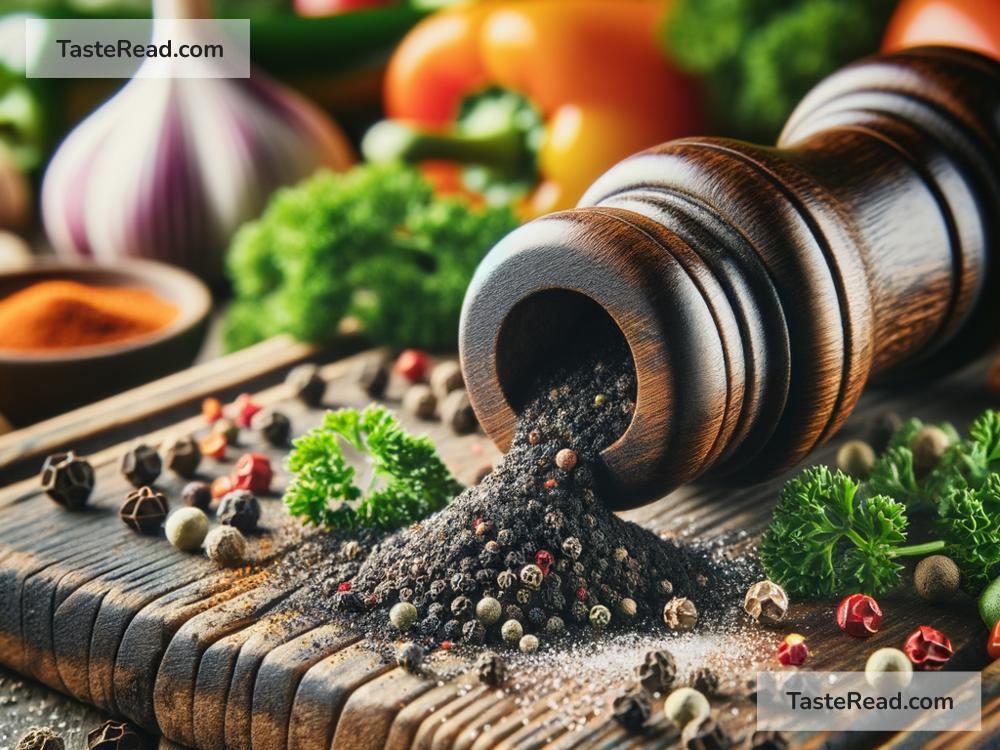Why Black Pepper Is the King of Spices
When you think of spices, black pepper is probably one of the first that comes to mind. It’s often referred to as the “King of Spices,” and it has earned this royal title for good reason. Black pepper is loved worldwide and has been an essential part of cooking, medicine, and even history for thousands of years. In this article, we’ll explore why black pepper holds such a special place in our kitchens and hearts.
A Spice With a Rich History
Black pepper has been valued for centuries. It comes from the dried fruit of the Piper nigrum plant, which grows in tropical regions such as India, Vietnam, and Indonesia. Historically, India has been the largest producer of black pepper, and it’s where this spice was first cultivated.
But black pepper wasn’t always as common as it is today. In ancient times, it was often called “black gold” and was so valuable that it was used as currency in trade. So much so that controlling the black pepper trade became a reason for exploration, wars, and even the discovery of new lands. Traders traveled great distances to bring black pepper to Europe, making it one of the most sought-after commodities of the time.
A Flavor Like No Other
Black pepper stands out among spices because of its bold, versatile flavor. Its sharp, slightly spicy taste enhances almost any dish, from soups and salads to meats and vegetables. Unlike other spices that may dominate or overwhelm the flavor of a dish, black pepper works in harmony with ingredients, giving food a richer and deeper taste.
What makes black pepper spicy is a compound called piperine. Piperine is responsible for that warm, tingling sensation we get when we eat something seasoned with pepper. The beauty of black pepper’s flavor is its balance—it’s not as fiery as chili peppers, but it packs just enough punch to make our taste buds dance.
The Health Benefits of Black Pepper
If taste alone isn’t enough to crown black pepper the king of spices, its health benefits surely seal the deal. Black pepper is often used in traditional medicine due to its healing properties. Modern science has also discovered how this spice can be good for your body.
Here are just a few health benefits of black pepper:
-
Rich in Antioxidants: Black pepper contains antioxidants that fight free radicals in the body, reducing inflammation and helping to prevent illness.
-
Improves Digestion: Piperine in black pepper can stimulate digestive enzymes, making it easier for your body to break down food.
-
Boosts Nutrient Absorption: Black pepper can help your body absorb nutrients like vitamins and minerals from other foods.
-
Supports Weight Management: Some research suggests that black pepper may help in burning calories and managing body weight.
-
Fights Infections: Black pepper has antibacterial properties that may help combat minor infections.
Because of these benefits, black pepper isn’t just used in cooking—it’s often included in herbal remedies to promote health and healing.
A Kitchen Staple Around the World
Black pepper’s universal appeal comes from its adaptability in all types of cuisine. Whether you’re cooking Indian curries, Italian pastas, Chinese stir-fries, or French sauces, black pepper plays an essential role in flavoring food. It’s one of the few spices that doesn’t belong to just one cultural tradition—it’s enjoyed by people everywhere.
In fact, black pepper is so versatile that it pairs well even with desserts! It can add depth to dishes like cakes, cookies, or chocolate mousse, proving it’s not just for savory foods. Its ability to complement both sweet and salty dishes makes it truly exceptional.
Even beyond cooking, black pepper is often combined with other spices, like turmeric, to make “golden milk.” This soothing drink is popular for its health benefits, particularly in Indian households.
How Black Pepper Is Made
Making black pepper involves some fascinating steps. The pepper berries are harvested while they’re still green, then dried in the sun until they shrivel and turn black. This simple process retains their natural oils and flavor while preserving their spicy kick.
There are different types of peppercorns, including black, white, green, and even red peppercorns. Black peppercorns are the most commonly used and have the strongest flavor, while white pepper is milder and preferred in light-colored dishes.
Why Black Pepper Is Irreplaceable
Even though there are so many spices available today, black pepper remains special. It’s a spice that can elevate the simplest dishes, like a fried egg or bowl of soup, into something extraordinary. Its rich history, unique flavor, and nutritional value make it worthy of its title as the king of spices.
So the next time you sprinkle black pepper on your food, take a moment to appreciate this humble but powerful spice. It’s not just a condiment; it’s a part of our global culture, history, and health.
Black pepper truly deserves the crown—long live the King of Spices!


